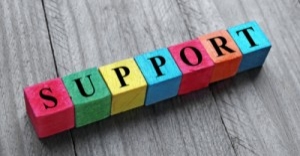

In late 2024, the Australian Government announced a 15% wage increase for early childhood educators. The so‑called “15% grant” is actually a government‑funded wage subsidy that delivers a 15% pay rise for early childhood educators. Services must apply for the funding, agree to fee‑cap conditions, and pass the increase directly to staff. Once the grant period ends, services lose the subsidy and must sustain wages through normal operations.
Resigning from a role in early childhood education is a natural part of career progression. Whether you’re moving on to new opportunities, prioritising wellbeing, or navigating personal changes, it’s important to resign with clarity, professionalism, and dignity. This guide outlines notice periods, signs it may be time to leave, what to say, how to write a resignation letter, and strategies for managing difficult situations.
Early childhood educators are being unfairly targeted by fear-driven narratives and reactive policy changes, despite evidence showing they are among the safest and most dedicated professionals in the education system.
Early childhood education is facing a crisis that cannot be solved with more training modules or compliance checklists. Educators are not leaving because they lack skills or passion. They are leaving because they are being treated as expendable, micromanaged to exhaustion, and denied the respect they deserve as professionals and as people.
In early childhood education, numbers matter. Ratios often dominate policy debates, but group size, the total number of children in a room, can be just as critical. As policymakers revisit standards, group size caps are emerging as a safeguard for quality care, protecting both children’s developmental needs and educators’ well-being.
In early childhood education, leadership is not just about titles; it’s about responsibility, trust, and the ability to step in when needed. One role that often sparks discussion is the Second-in-Charge (2IC). What does this position really mean, and how can services set clear expectations to support both staff and children?
In the quiet hum of a weekday morning, something felt off. Preschool doors opened, but classrooms remained silent. No greetings. No redirection. No educators. And suddenly, the world felt the consequences.
This wasn’t a strike. It was a reckoning.
Early childhood educators, those often dismissed as “just babysitters,” didn’t show up. Not because they didn’t care, but because the system stopped caring first. Their passion had been trivialized. Their safety was compromised. Their pay was insulting. And when they stepped back, everything else fell apart.
The recent announcement by Minister for Education Jason Clare that childcare centres will receive funding to close early for mandatory child safety training. But let’s be clear—child protection training is not new. Educators already undertake annual courses and ongoing professional development throughout the year. You cannot work in this industry without it. Training is essential, but it is not where the real problems begin.
Child protection courses are already mandatory. The real crisis?
Too many children per educator
Understaffed centres
Lack of inclusion support for children with disabilities
Until ratios drop and staffing rises, training alone won’t fix child safety.
Children experience adult communication not just through words, but through tone, emotional energy, facial expression, and body language. Two interactions may be equally loud, yet feel completely different to a child. Understanding this distinction is essential for safeguarding, trauma‑informed practice, and meeting regulatory obligations.
A: While stencils can sometimes support fine motor skills and tracing practice, the EYLF and NQS place a strong emphasis on child‑directed, open‑ended experiences that nurture creativity, agency, and authentic expression. This means the real issue isn’t whether stencils are “wrong,” but how their use aligns with our responsibility to prioritise process art and ensure children’s voices remain at the centre of their learning.
 On 10 December 2025, the Fair Work Commission issued a major determination affecting the Children’s Services Award 2010 (MA000120). These changes form part of the… Read More
On 10 December 2025, the Fair Work Commission issued a major determination affecting the Children’s Services Award 2010 (MA000120). These changes form part of the… Read More
 Over the next five years, educators across the sector will see steady, structured wage increases designed to lift pay to the new benchmark rates for… Read More
Over the next five years, educators across the sector will see steady, structured wage increases designed to lift pay to the new benchmark rates for… Read More
 The Fair Work Commission has introduced important changes to how cooks are classified and paid under the Children’s Services Award 2010. These changes recognise that… Read More
The Fair Work Commission has introduced important changes to how cooks are classified and paid under the Children’s Services Award 2010. These changes recognise that… Read More
 At the centre of this case is an incident captured on CCTV at an early learning service in Bathurst, where 18‑year‑old educator Hayley Kelleher grabbed… Read More
At the centre of this case is an incident captured on CCTV at an early learning service in Bathurst, where 18‑year‑old educator Hayley Kelleher grabbed… Read More
© 2009-2025 Aussie Childcare Network Pty Ltd. All Rights Reserved.

